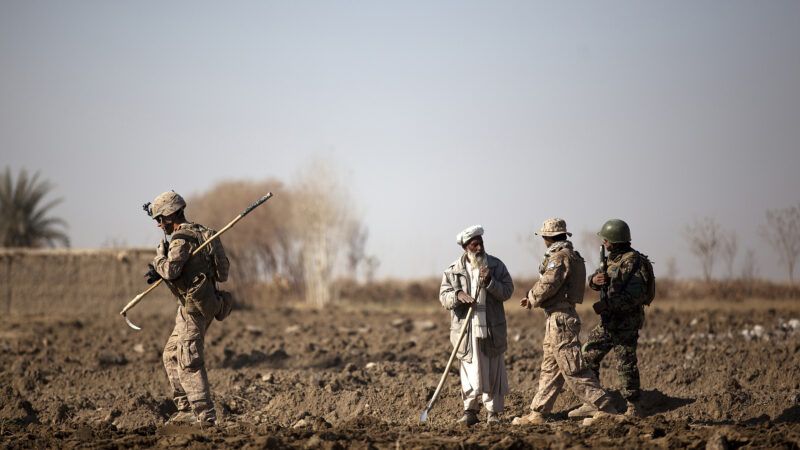The U.K. Is Accelerating Resettlement Efforts for Afghan Interpreters. The U.S. Should Do the Same.
Time is running out for Afghan personnel who have aided U.S. troops.

On Monday, the British Ministry of Defense announced that it would expedite the relocation of Afghan staff who had assisted British troops during military campaigns in the country, as well as their family members. Most of those people worked as interpreters, helping British soldiers traverse Afghanistan with their knowledge of the local language and customs.
"We owe a debt of gratitude to our interpreters and other locally employed staff who risked their lives working alongside UK forces in Afghanistan," said Defense Secretary Ben Wallace in a statement. "As we withdraw our Armed Forces, it is only right we accelerate the relocation of those who may be at risk of reprisals."
This latest move speeds up the implementation of a program established in April, which grants Afghans currently and previously employed by the British government priority relocation assistance, provided they are "at serious risk of threat to life." Interpreters and other workers qualify for this support regardless of rank, employment status, or length of time served. Less urgent cases are still eligible for routine relocation.
The announcement comes amid growing concerns about dangers posed to Afghans as U.S. and NATO troops withdraw from the country ahead of September 11. Taliban attacks have surged as the international military presence has dwindled, and interpreters are desirable targets, given their ties to foreign parties.
The U.K. government has already resettled more than 1,360 Afghan workers and their families and has plans to welcome over 3,000 more people through the expedited processing. Many interpreters have been waiting several years to receive a visa, and the U.K. program is an acknowledgment that their time is running out.
The U.S. should take note. The American immigration pathway for interpreters, the Special Immigrant Visa (SIV) for Afghans, is deeply dysfunctional. Slow processing times have left interpreters and their family members—nearly 70,000 people—waiting for visas. Many who qualify for SIVs won't get them because of government errors. And unlike the U.K. scheme, hopeful Afghan immigrants must have completed at least two years of service to be eligible for the U.S. visa.
To their credit, some U.S. officials are attempting to address this problem. Mark Milley, chairman of the Joint Chiefs of Staff, told reporters last week that the Defense Department and State Department were exploring evacuation options for Afghan interpreters. Reps. Adam Kinzinger (R–Ill.) and Earl Blumenauer (D–Ore.) have introduced a bill that, if passed, would allocate 4,000 more visas for interpreters. Several senators have called for faster visa processing.
But those measures may all be too little, too late. Interpreters have long been subject to Taliban death threats—threats that have been realized for hundreds of Afghans and their family members. Without quick action, these allies face unspeakable horrors. The U.S. must implement the U.K.'s approach immediately.

Show Comments (20)